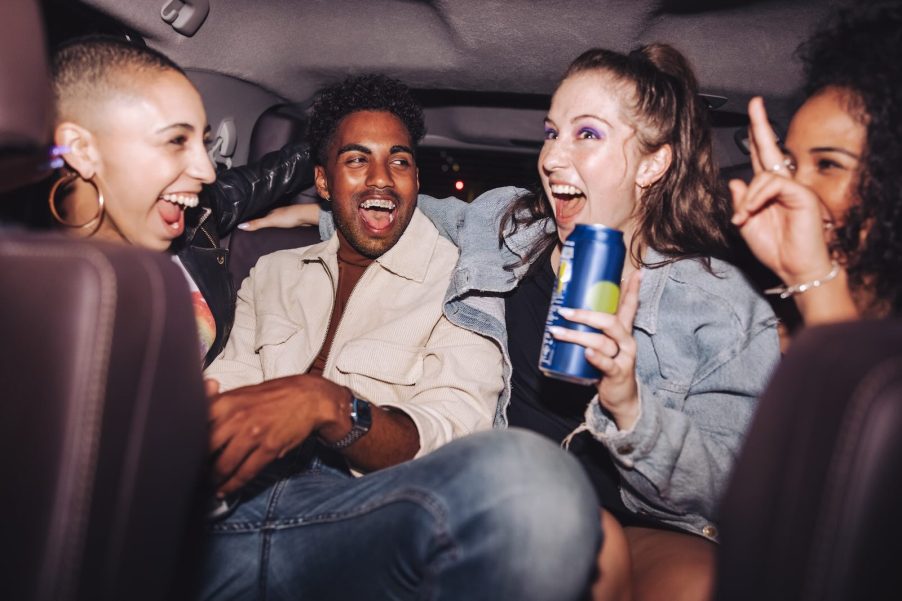
What happens if you get pulled over while your passenger is drinking?
You might be surprised to hear that in eight states, your passenger is allowed to drink while you drive. In the rest of the country, if police pull you over while a passenger is drinking you’ll face an open container violation. And even in the states where it’s legal for your passenger to drink, you may have to prove you’re sober if you have an open container anywhere in your vehicle.
Let’s say a police officer pulls you over and finds your passenger has an open container of alcohol. A big part of their job is preventing drunk driving. So their first priority will likely be establishing whether or not you have been drinking as well. They may call the open container probable cause you’ve been drinking and they may subject you to a field sobriety test or even a breathalyzer test.
If the investigating officer establishes that you are sober, their next concern will be the open container itself. If you are driving in a state where it’s illegal for your passenger to drink while you drive, this is an open container violation. You and your passenger may both receive tickets. Why would you get ticketed for your passenger’s behavior? As the person driving the car, you’re responsible for all its occupants.
This is not the case in every state of the U.S.A. In fact, 8 states allow your passenger to drink. They are Alaska, Connecticut, Delaware, Mississippi, Missouri, Rhode Island, Tennessee, and Virginia. Mississippi even allows the driver to drink alcohol while they drive, as long as their BAC remains below the federally-mandated .08%. Two states (West Virginia and Arkansas) specify that your passenger can transport an unsealed container of alcohol, but can’t drink from it while you’re on a public road.
You might say these laws make enforcing drunk driving difficult. What if a driver hands their open drink to a passenger after they get pulled over? Well Virginia has a solution. If a driver allows any open containers in their vehicle, police can assume they’ve been drinking and require they pass a field sobriety test. That’s right, the police don’t need further evidence–with an open container in the car the burden of proof is legally on the driver.



